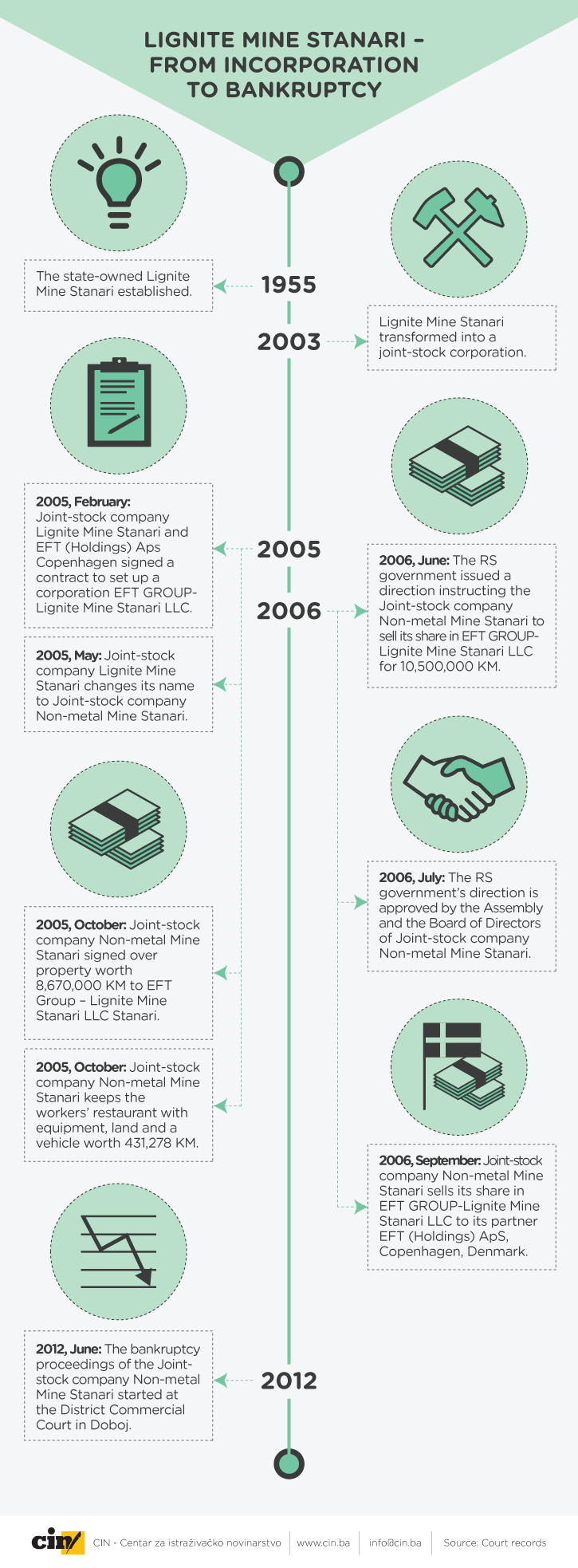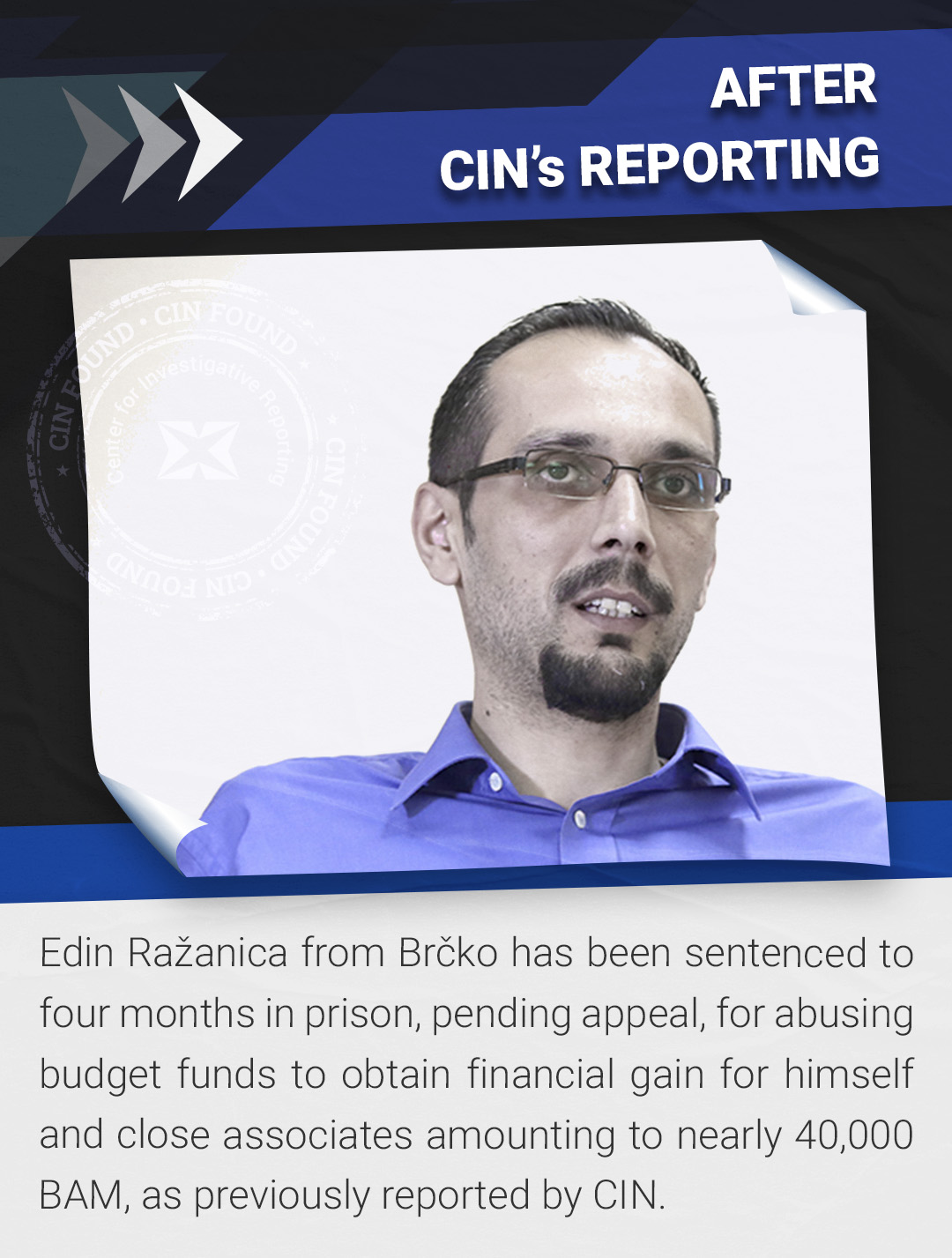Near Mitar Grujić’s house there are mounds of lignite, soft brownish coal from the nearby Stanari Lignite Mine. This valuable ore is guarded by security officers who limit the movement for curious passers-by. Grujić does not mind it. He is happy about the excavated ore: “I like it because of the neighborhood and the workers and these youth and myself,” says sixty-year old Grujić, who works in the mine.
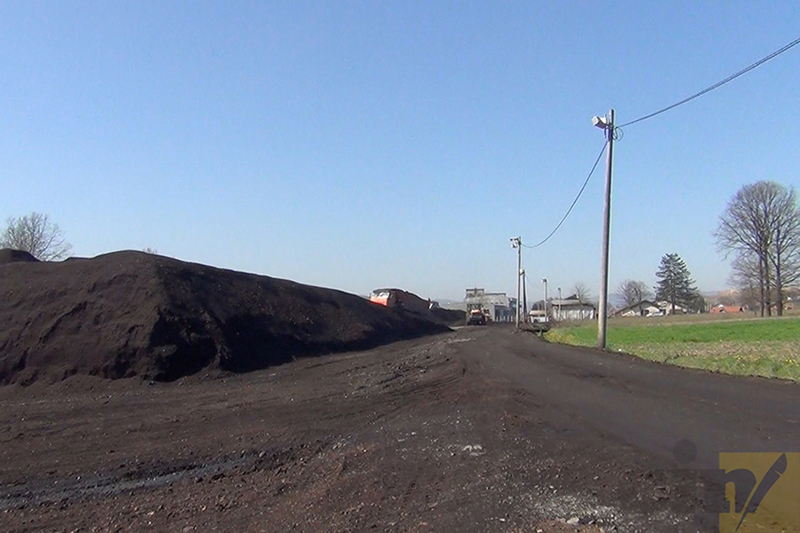
The mine used to be state property, but today it belongs to a global energy trading and investment group known as the Energy Finance Team (EFT). Even though officials have touted this as a successful privatization, the Center for Investigative Reporting in Sarajevo (CIN) learned that the Mine was not bought together with its debts and claims.
According to the financial and court documentation, nine years ago the mine was split in two parts. The bigger part of the property-the land, the buildings, and equipment- became property of the newly founded firm EFT Group-Stanari Lignite Mine, whose majority owner was EFT. What was left- the restaurant, not much land, debts and hard-to-collect claims, was sent into bankruptcy.
The paperwork shows that the property was sold for 10.5 million KM even though it was worth on books 28.8 million KM. Two hundred sixty-seven hectares of land were thrown in for free.
Buried beneath Stanari is at least 100 million tons of lignite, worth at least six billion KM at the current market price.
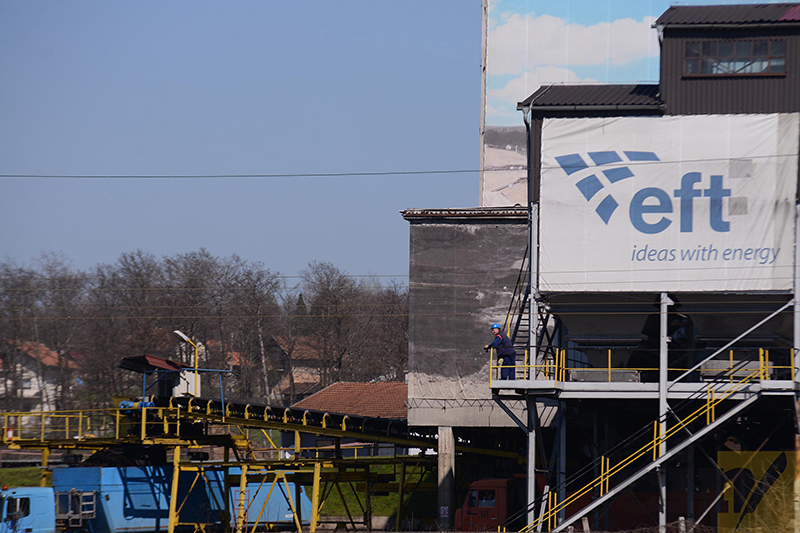
Dragan Mikerević was the RS prime minister back when the government approved these activities. He said the mine in its previous configuration was dysfunctional and hemorrhaging money.
“When you need to solve an issue, than you have to be ready, like a surgeon, to cut off an arm to save the body,” Mikerević told CIN. “At that moment you decide what you’re going to cut. This was what we decided on.”
EFT Group’s principal activities are investment and energy trading, and its main owner is the company EFT Investment Plc located in Cyprus, according to the company’s audit report. Its majority co-owners are Vuk Hamović and his son, Miloš. The older Hamović has been dubbed “the Balkan King of Power” in various media reports.
Entry of a Foreign Partner
The Stanari lignite mine located near Doboj in centra Bosnia and Herzegovina was founded in 1955. Since then, the mine had provided a decent living for 450 workers, but after the 1992-1995 war, it fell on hard times, like most state-owned corporations. In 2003, it became a joint-stock company, with the state as majority owner and the rest of the company shared among the workers, the RS Pension Fund and the RS Restitution Fund.
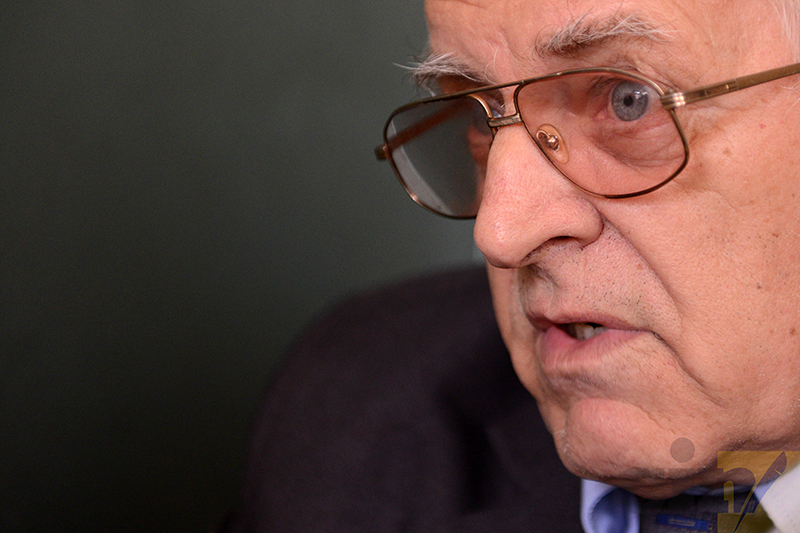
Milan Đurić, the mine’s director in 2003, told CIN that they were in dire straits at that time, and that there was a workers’ strike which lasted for months.
“The mine was in such a state that the mining almost could not have been done at all,” he recalls.
According to the mine’s financial records, by mid-2004 the mine owed 11.6 million KM to its creditors, including money owed to suppliers, salaries and benefits to workers, pending litigation fees and loan payments to the banks.
Đurić said the government decided to seek out a strategic partner to help cover the mine’s liabilities. A call for applications seeking a partner for a new corporation was put out; the only bidder was EFT Group.
In February of 2005, the agreement incorporating EFT Group-Stanari Lignite Mine was signed between EFT Group’s Danish-based subsidiary, EFT (Holdings) APS, and the joint-stock company. The foreign partner owned 72,24 percent while the government retained the rest.
Each of the partners accepted certain obligations.
The government was to issue a concession permit for mining coal at the nearby fields of Ostružnja and Raškovacand to announce expropriation of land as public interest, meaning taking private land not owned by the mine with a certain compensation to the land owners.
The Stanari Mine was to turn over their property to the new firm. The Banja Luka Mining Institute and Banja Luka Economic Institute appraised said property at 8,670,000 KM, however, without an itemized inventory. Instead, they said that the appraisal excluded the restaurant, coal deposits, stadium and a car of VW Golf brand.
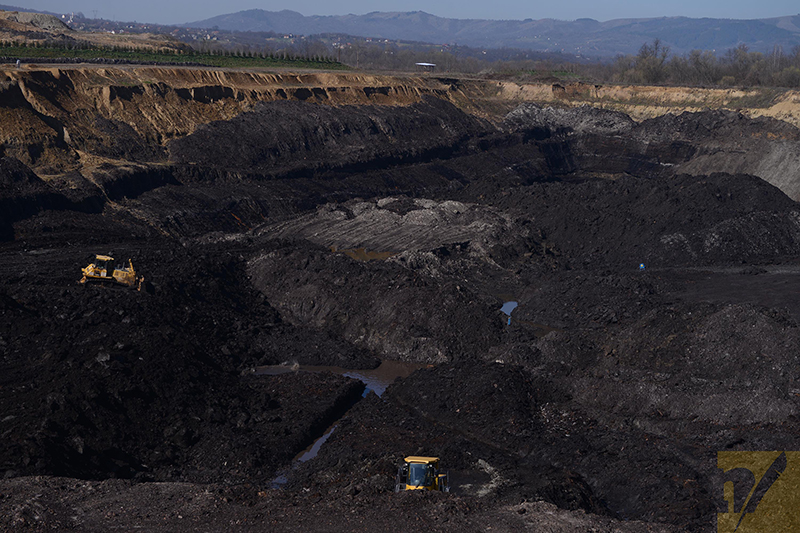
EFT was to invest 22.5 million KM to be spent on mining activities, equipment, drainage, and construction during 2005 and 2006.
The new firm, EFT Group-Lignite Mine Stanari, had obligations of its own to meet. It was to absorb 268 workers from the joint-stock firm Stanari Lignite Mine and would pay most of the Mine’s debt: 7 million KM to the suppliers and 3.3 million KM for unpaid salaries and pension and welfare benefits.
Three months after the deal was concluded, the government granted the new company the right to mine coal for 30 years, with a possibility of extension, under the condition to pay a 3.4 percent total revenue fee from the sale of the coal.
In July 2005, several months after the EFT deal was concluded, expert witnesses Rade Dugić and Mira Vasić made an inventory of the property that would become the new company’s property. It listed all equipment, buildings, facilities, and land, coming up with the 8,670,000 KM appraisal as the Banja Luka institutions.
Financial records show that the value of property had been decreased and that it stood at 28.8 million KM according to the book value. The expert witnesses appraised the land as worth less than one million KM, even though the mine’s own balance sheet listed its land holdings as worth 24 million KM.
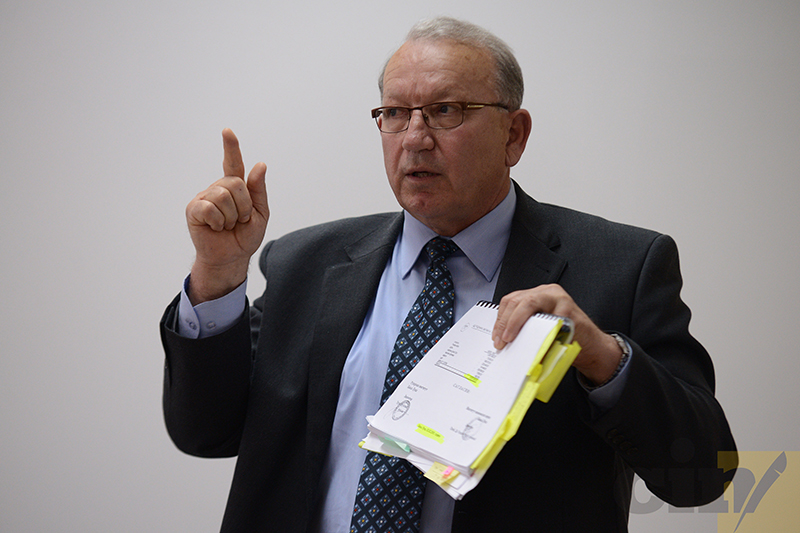
Marko Dragić, a lawyer from the nearby town of Odžak and an expert on international contract law, doubted the expert witnesses’ fairness and professional ethics and said that “the experts tweaked their findings” to keep the assessed value low.
Meanwhile, the old mine company changed its name to the Joint Stock Company Nonmetal Mine Stanari. This firm continued to work in the company-owned restaurant in Stanari with only 17 workers, as the others had been shifted over to the new firm. The debts continued to pile up.
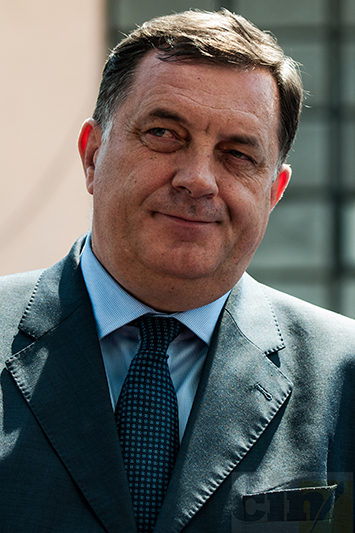
EFT Group-Lignite Mine Stanari started doing business on the property of the old mine. EFT representative Stevan Lončar said they immediately invested around four million KM to get things going. They bought new rail lines, bought additional equipment, and did construction and other works.
“The mine did not have basic work equipment. They had no open deposits of coal. The equipment was falling apart. The coal production did not exist. The market had died,” Lončar told CIN.
In the first year, the lignite production revived. According to records from the BiH Official Gazette, in September 2005 and January 2006, the new firm sold 2.4 million KM worth of coal to Doboj City Heating Company.
The old mine did not share in the profits, although it was a co-owner in the new company. EFT officials said that they did not split the dividend due to increased costs of doing business “as the consequence of bad management in the past 20 years.” They also said that the joint-stock company’s debt had not been paid, as it had been agreed, because they could not present it as an increase of share in the capital.
Mine Exits from the Successful Consortium
In February 2006, Republika Srpska got a new government led by Prime Minister Milorad Dodik. Three months later, the RS government issued a directive that the old firm should split from the new corporation.
Noting that the debts of Non-metal Mine Stanari continued to rise, the Government suggested that the old mine could solve these problems by selling its shares in EFT Group-Lignite Mine Stanari for 10.5 million KM.
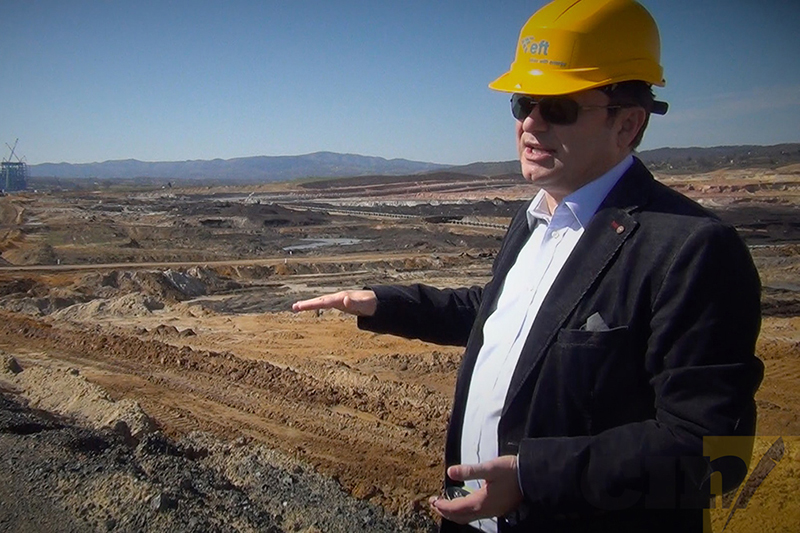
The directive granted the Danish EFT (Holdings) APS the right of first refusal when it came to buying the Stanari Nonmetals Mine stock. For its part, EFT Group-Lignite Mine Stanari agreed to hire Stanari Nonmetals Mine’s workers, the dozen or so that stayed working in the restaurant.
“We wanted to bring it to an end. We were socially responsible and we were protecting workers,” told Dodik to CIN reporters. He is the RS President today.
The directive commanded the mine to initiate bankruptcy proceedings after the sale of its share. Dodik said that there was nothing controversial here. “When the government adopts a directive, I sign it and this is my obligation,” he said in a brief statement for CIN.
Dodik refused to talk more about this issue.
The government’s directive was upheld by the Assembly and the old mine’s board of directors. Soon enough, a tender on the sale of Nonmetals Stanari Mine’s shares in the new corporation was put out stating that EFT (Holdings) APS had the right of first refusal and if it did not use it, then a bidder with the best offer would be chosen.
EFT (Holdings) APS was the only bidder. In September 2006, it signed the agreement to buy out its partner’s 27.76 percent for 10.5 million KM becoming the sole owner of the new firm.
Considering that the losses of the joint-stock company were bigger than 20 million KM, the money they got was not sufficient to save them. Seven years later, the firm filed for bankruptcy at the District Commercial Court in Doboj.
Lawyer Dragić said that the RS government could not have issued such a directive because it was not the sole owner of the Nonmetal Mine. The action, he said, has damaged other shareholders at least in the amount of the nominal value of their shares. He said that the act of bankruptcy ends all property rights of the incorporators, including the shareholders, and the creditors get the right to property.
Even though at least ten small shareholders with whom CIN reporters have talked knew nothing about the Mine’s fate, former director Đurić said that this was a job well done.
“Nothing was concealed,” he said.
267 ha of Land Appraised to Zero KM
In Jan. 2007, several months after the partners parted their ways, the expert witness Vasić made an addendum to her earlier appraisal report by adding up all the cadastre plots . In the report she said that 269 ha of land was not worth even a million KM. She appraised, 267 ha of the land to zero KM, saying that this was overburden, that is, the overlaying soil and rock that must be removed to get to the ore. According to Stanari Lignite Mine’s balance sheet from 2004, the value of the land was around 24 million KM.
Among the cadastre plots that Vasić listed as overburden was the restaurant’s plot which belongs to the old Mine. That land, together with the building, has been mortgaged for 244,000 KM of a loan from the Hypo Bank.
Vasić refused to talk to CIN reporters. EFT officials say that this was an error and they corrected it by returning the ownership of those cadastre plots to the joint stock company.
EFT has paid 22,5 million KM in incorporation capital. Lončar said that they have spent as much as 40 million KM to compensate the owners whose land was confiscated through eminent domain.
Mitar Grujić, along with others, is negotiating the sale of his property.
“No offers have been made yet, but we’re negotiating,” Grujić told the reporters when asked how much money he expected to get for his estate.
EFT, based on the concession contract awarded to its firm EFT Group- Stanari Lignite Mine, has rights to mine ore in Stanari.
Predrag Aškrabić, the president of the RS Concession Commission, said EFT won the concession because it was the only bidder for the privatization of the mine. “It is foolish to give them a firm that just has debts and that they don’t get, as it were, the natural resources for which the firm was created in the first place,” said Aškrabić.
According to the records from the BiH Official Gazette, the company won contracts to supply lignite in the amount of 13 million KM between 2005 and the end of 2013. According to a letter from the RS Ministry of Industry, Energy and Mining, they paid 3.4 million KM in concession fees so far.
The contract anticipates that lignite will be mined at a rate of 3.5 million tons per year. At that rate, the Stanari coal should last for 50 years. Currently EFT officials say that they are mining about 1 million tons a year, while the plan is to eventually excavate 2.5 million tons of coal a year.
Out of this, 2.3 million tons of coal will burn the power plant EFT is building next to the mine. The rest will be sold on the market. EFT officials say that this is a win-win deal. “We’ve never made a bad deal for us,” said EFT’s Stevan Lončar.


